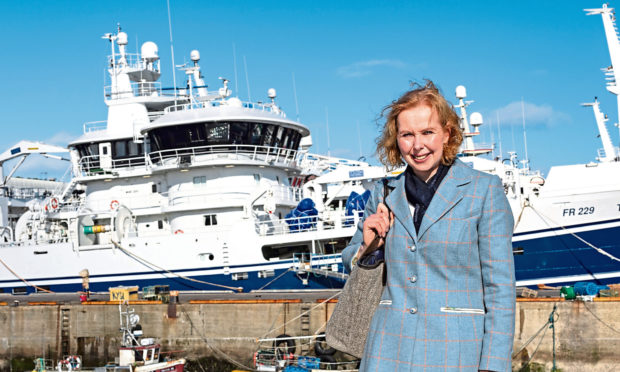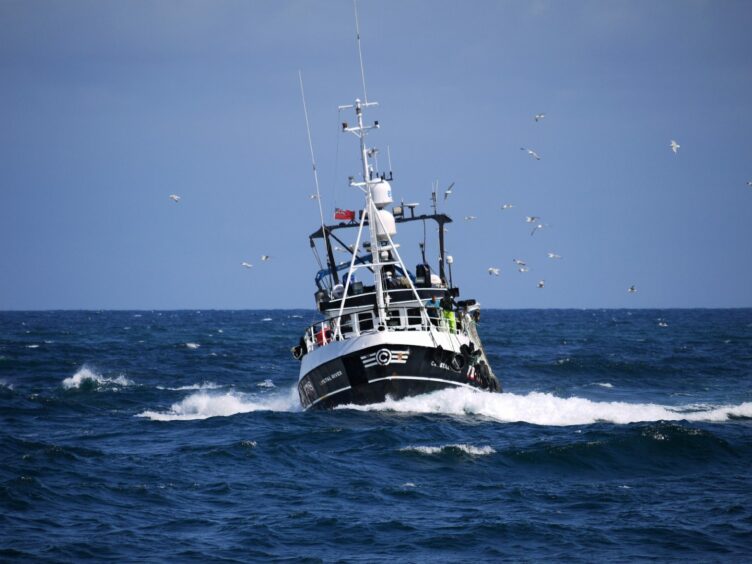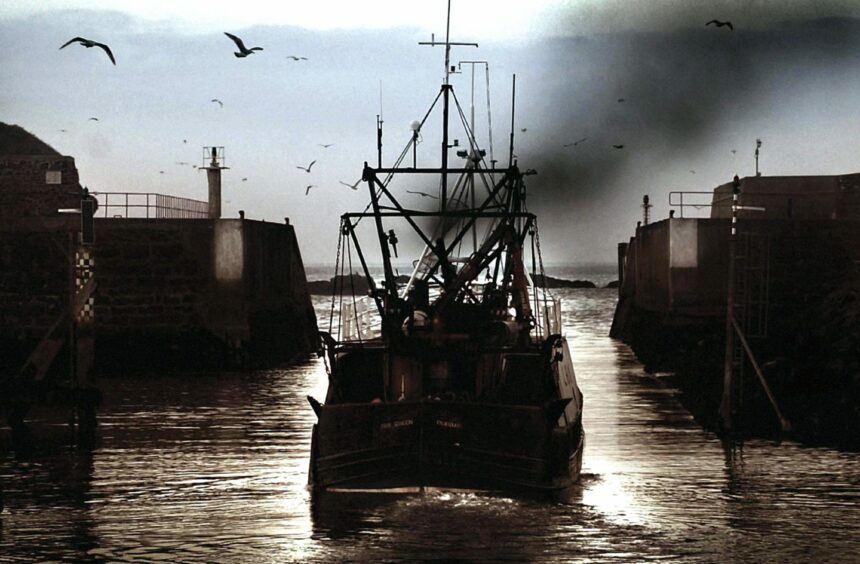New plans for Highly Protected Marine Areas (HPMAs) will be “catastrophic” for Scotland’s fishing fleet, an industry leader has warned.
Scottish Fishermen’s Federation (SFF) chief executive Elspeth Macdonald also claimed the Scottish Government’s “blue economy” strategy had been hijacked by the Greens and would “push the fishing industry into the red”.
And she urged ministers to “pause, reflect and re-think” on HPMAs.
As they stand, the proposals will have a catastrophic impact on the fishing industry and our coastal communities that depend on it for jobs and income.”
Elspeth Macdonald, chief executive, Scottish Fishermen’s Federation
It is the latest salvo in a flurry of attacks on Holyrood’s controversial proposals for HPMAs that would make at least another 10% of Scottish waters off limits for fishing.
The government insists they will conserve marine ecosystems, while continuing to provide economic and social benefits.
HPMAs will allow key species and habitats to “restore and recover”, benefiting both nature and the economy by making sure there are “sustainable levels of fish and other marine products to be derived and benefitted from our seas”, a spokeswoman added.
Fear for jobs and fishing income
But organisations including Shetland Fishermen’s Association, Salmon Scotland and Seafood Shetland have warned hundreds of jobs and millions of pounds of income are at stake.
And SFF says the strict conservation zones are “far too big a price for fishermen to pay”.
The HPMA proposals are out to consultation until April 17.
According to SFF, they lack ecological justification and are being introduced “for purely political reasons”.
And in its submission to the consultation, the industry body also warns the proposed timeframe of having HPMAs up and running by 2026 is “wholly unrealistic for defining or establishing baselines”.
The ‘spatial squeeze’
Marine Protected Areas (MPAs) already cover 37% of its Scottish waters.
SFF chief executive Elspeth Macdonald said: “The Scottish Government’s blue economy plans have been hijacked by the Greens and will push the fishing industry into the red.
“On top of the existing spatial squeeze caused by the dash to build huge offshore wind farms, with little consideration for their impact on fisheries, the government wants to close a further 10% of our waters to fishing vessels.
“The underlying assumptions are that fishing is damaging to the environment and stocks are degraded.
“Neither is justifiable, and in fact, the government’s own indicators show that sustainability of commercially fished stocks is on a continuing upwards trend.”
SFF insists it is “highly supportive of meaningful conservation” and says it was an “active and supportive” partner with government in developing the MPA network.
Alternative industry proposal
It is proposing two “carefully designed” HPMA pilot areas, one inshore and one offshore, that would “allow government and stakeholders to work together, learn how to introduce them properly and plan the data collection and analysis needed to assess their impact”.
Ms Macdonald added: “This extremely poor HPMA policy literally emerged from the blue – from the Bute House Agreement in fact – when Scotland already has an extensive MPA network that the SFF and fishing industry has been closely involved in creating.
This extremely poor HPMA policy literally emerged from the blue.”
“SFF is urging the Scottish Government to have a radical rethink on this and at the very least accept our alternative proposal for two pilot projects to assess the need, practicalities and costs/benefits in a proper scientific manner.
“As they stand, the proposals will have a catastrophic impact on the fishing industry and our coastal communities that depend on it for jobs and income.”
Fishers and seafood producers vent fury over plans for highly protected marine areas… @sff_uk @ShFishermen @SalmonScotland @ShetlandSelect https://t.co/ObDRPlIlWC via @pressjournal
— Keith Findlay (@KeithFindlay1) March 16, 2023
In England, three HPMAs covering 0.53% of English waters are to be trialled as pilots.
Ms Macdonald said: “What is proposed in Scotland are permanent designations of at least 10% of our seas to a completely unrealistic timescale and with no proper foundations for their purpose.
“This is not how to make good policy, and we call on the Scottish Government to pause, reflect and re-think.”



Conversation